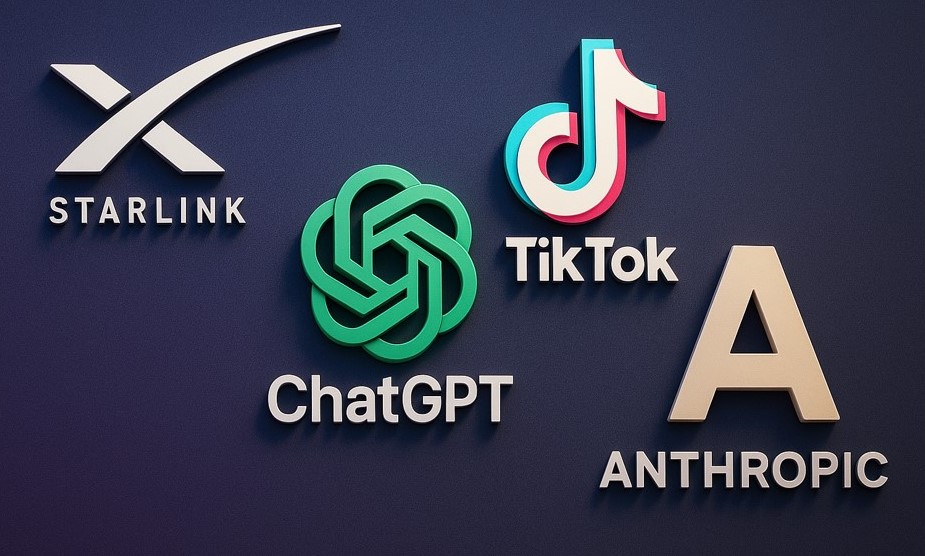Trump Unleashes Executive Order to Seize TikTok, Igniting US-China Tech War

President Donald Trump recently signed an executive order, marking a pivotal moment for the popular social media platform TikTok in the United States. This order outlines the terms for transferring TikTok's operations to American ownership, a move designed to resolve escalating national security concerns and comply with a law that mandated a divestiture or face a complete ban of the app for American users.
The agreement, reached between President Trump and China’s President Xi Jinping, allows TikTok to continue operating in the U.S. by separating it from its Chinese parent company, ByteDance. Trump emphasized that the new entity would be "American-operated all the way." Under the proposed plan, a consortium of U.S. investors is set to acquire approximately 80% of the U.S. version of the spun-off company, while ByteDance and other Chinese investors will retain a stake of less than 20%.
A crucial element of the deal involves the transfer of control over TikTok’s powerful recommendation algorithm. American investors will not only oversee TikTok’s U.S. operations but also secure a license to control a copy of the app’s algorithm. This licensed algorithm will be retrained exclusively with U.S. user data, with the new U.S. company controlling and monitoring the code and all content-moderation decisions. White House officials have stated that this measure is intended to nullify any risk of Chinese interference or access to U.S. user data, which had been a significant point of bipartisan concern among U.S. lawmakers.
The governance structure of the new U.S. TikTok entity will include a seven-member board of directors, with six members being Americans, comprising cybersecurity and national security experts. ByteDance will have one representative on this board, but that individual will be excluded from any security-related discussions or decisions. The new U.S. company is valued at $14 billion, a figure notably lower than ByteDance’s overall estimated valuation of around $330 billion.
Leading the group of American investors is the U.S. software giant Oracle, which, along with its co-founder Larry Ellison, will provide cloud services for user data storage and oversee operations. Other prominent investors mentioned by Trump include media mogul Rupert Murdoch and Dell computers CEO Michael Dell. The involvement of individuals with strong business or political ties to Trump has raised questions regarding potential political influence over the platform’s editorial policies. While Trump humorously suggested he'd make it "100% MAGA-related" if he could, he indicated that the app would continue to recommend a wide variety of content, treating "every philosophy, every policy... fairly."
For the approximately 180 million Americans who use TikTok, including a significant portion of young adults and teenagers who rely on it for news, the future experience of the app remains a subject of speculation. While the goal is to address security concerns and allow continued operation, any noticeable changes to the platform's service or algorithm could risk alienating its vast audience, as seen with other social media platform overhauls. However, officials suggest that gradual changes resulting from the algorithm's retraining with different data might be unnoticeable to most users.
The deal concludes months of legal uncertainty for TikTok. Congress had previously voted overwhelmingly to compel ByteDance to find a U.S. buyer or face a ban, a decision upheld by the Supreme Court. Trump had initially signed an executive order postponing the ban and subsequently delayed its enforcement repeatedly to facilitate a sale. The new executive order confirms that the deal is a "qualified divestiture" that "resolves" national security concerns, though the full divestiture from ByteDance is not expected to be completed for another 120 days.
From China's perspective, Beijing, which once labeled the demand for TikTok's divestiture an act of "robbery," shifted its stance as U.S.-China trade relations evolved. Analysts suggest that agreeing to the TikTok deal allows China to maintain momentum in trade negotiations and prevent further negative developments in bilateral relations. Furthermore, some experts believe Beijing prioritizes retaining access to U.S. technology and services for its long-term goals of self-sufficiency in key areas like semiconductors, artificial intelligence, and advanced manufacturing, making a maturing consumer app like TikTok less strategically critical in comparison.
While Trump had initially alluded to the U.S. government receiving a "tremendous fee-plus" for brokering the deal, he later clarified that the U.S. would primarily benefit from ordinary taxes generated by the new company. This agreement provides a resolution to a complex geopolitical and technological challenge, ensuring TikTok's continued presence in the U.S. under new American leadership, albeit with lingering questions about its future content and cultural impact.
You may also like...
Tottenham's £60m Gamble: Forest Threatens Legal Action Amid Gibbs-White Medical

Tottenham Hotspur is on the verge of signing Nottingham Forest midfielder Morgan Gibbs-White for £60 million, but the de...
Hell's Bells! 'Hazbin Hotel' Season 2 Trailer Drops, Bringing Back a Fan-Favorite Character from the Dead!

Prime Video's official trailer for <i>Hazbin Hotel</i> Season 2 offers a deep dive into the upcoming conflict between He...
The Whole Gang Returns: 'Everybody Loves Raymond' Celebrates 30 Years with Epic Reunion Special!

Thirty years after its debut, “Everybody Loves Raymond” is set to air a special reunion on November 24 on CBS and Paramo...
Explosive Revelation: New Footage Exposes Morgan Wallen's Initial Denial in Chair-Throwing Scandal!

Newly released police video footage shows country music star Morgan Wallen initially denying throwing a chair from a Nas...
Janet Jackson Joins Elite Club: Cardi B Fuels Historic 5-Decade Hot 100 Milestone!

Janet Jackson makes Billboard Hot 100 history by charting in a fifth distinct decade with her feature on Cardi B’s new t...
Royal Family Scandal: Meghan Markle's Father Reportedly Trapped in Philippines Apartment

Meghan Markle's father, Thomas Markle Sr., was trapped in a building after a 6.9-magnitude earthquake struck the Philipp...
Shocking Twist: British Boyband Member Accused of Assaulting Woman and Child

Multiple public figures in the UK are under scrutiny for alleged assaults and domestic abuse. An unnamed British boyband...
Act Now! BellaNaija's Vital #StopHPVForHer Campaign Demands Attention

BellaNaija has launched the #StopHPVForHer Campaign to combat cervical cancer by raising awareness about Human Papilloma...




